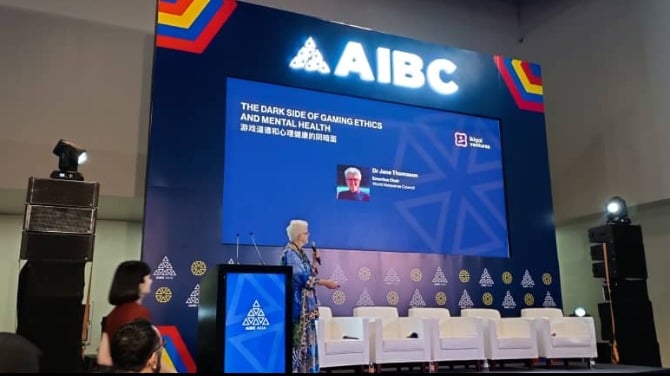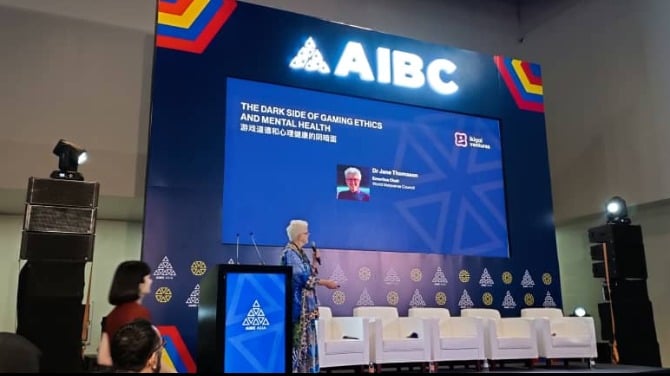 Listen To Article
Listen To Article
A SiGMA Manila 2024 talk by Dr Jane Thomason, Emeritus Chair of World Metaverse Council, was thought provoking. In this talk about gaming and its effects on mental wellbeing and society, Dr Thomason shared both the benefits and the harms that gaming can provide. In general, Dr Thomason covered gaming in terms of ‘video games’ – but there were obviously lessons for the gambling sphere, too, otherwise she would not have been speaking at the event!
To start with, there are a lot of ‘unexpected’ benefits of gaming. For example, simple games help reduce stress, anxiety and aggression, especially in male players. Strategic games and collaborative games, mainly found in video games and games that require thinking, actually help boost creativity, improve social behaviour, teamwork and reduce some effects of social anxiety. Gamification, the process of adding game mechanics into nongame environments such as education and businesses, can help or even encourage learning and collaboration.
However, there are also harmful effects. Excessive violence, gore, profanity etc can be intensified in gaming settings, especially towards younger gamers. Addiction to gaming, to the point of suffering withdrawal, self-isolation and detriment to a person’s overall well-being is a recognised disease under the World Health Organisation (WHO).
At the end of it all, gaming has legally proven medical benefits that could be capitalised on, but how to maintain the balance in keeping out the harmful effects? Both when it comes to video games and gambling (which, of course, has benefits for its players, why else would they play them?)
Dr Thomason has noted that these questions should always be in the minds of the people in this ever-growing ecosystem — 1) How to protect children and young gamers from being exposed to unsuitable gaming content or predators with ill intent hiding behind screens of games. 2) Transparency in the gaming mechanisms to prevent addiction, which is an ethical decision necessary by game developers. 3) Last but not least, how to educate the people so that they are better-equipped to recognise the benefits and avoid the harms.
While the above talk leans towards gaming in general, it is nevertheless a topic of interest, especially in other forms of gaming that includes i-Gaming, sports betting and gambling. Where the topic of responsible gambling/gaming comes into discussion; which aligns with the questions that Dr Thomason wanted everyone to think about.



